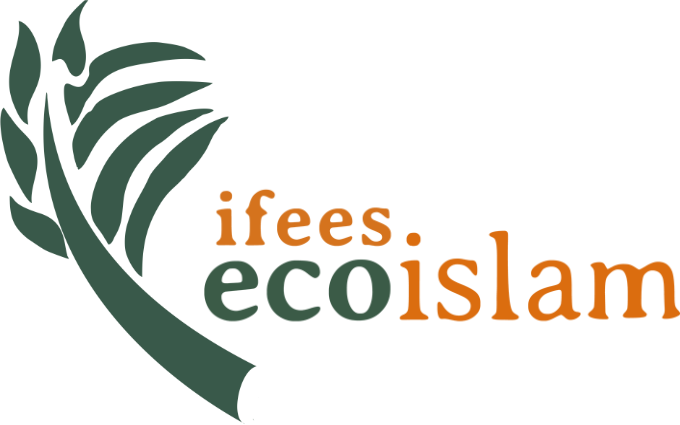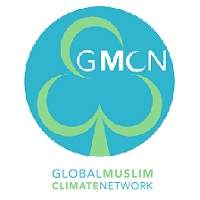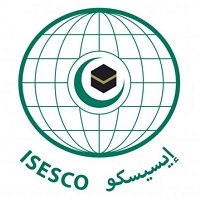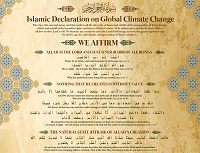It is estimated that there are about 1.6 billion Muslims in the world today and that is approximating to over 20% of the World’s population.
Corruption has appeared in land and sea caused by the hands of people so that they may taste the consequences of their actions and turn back
Qur’an, The Romans (Ar-Rum) 30:41
No one is exempt from the vagaries of climate change and Muslims have to accept their share of the responsibility for bringing this on to ourselves. In reminding the richer nations to shoulder their proportion of accountability for creating the greater volume of this problem it behooves each single one of us to play our part in returning the Earth to some semblance of balance. Islamic environmentalism is embedded in the matrix of Islamic teachings. The Qur’an is inherently conservationist and much of it has to do with how human beings relate to the natural world and the benefits that accrue from protecting it. The core of this declaration consists of the essence of the body of ethics based in the Qur’an which we would define as Knowledge of Creation (Ilm ul khalq).
The declaration itself was the result of far flung collaboration between organisations and individuals which finally culminated in it emerging as a substantive document at the symposium in Istanbul which took place on 17, 18 August 2015. The push for this came from the teaming up of IFEES/EcoIslam and Islamic Relief World Wide in 2014. Initial research commenced in late 2014 and the first working draft after internal consultation was ready by May 2015. Further work was carried out by a team of Muslim specialists consisting of academics and environmentalists, and the draft that emerged from this process was circulated worldwide through the internet and the web sites of IFEES/EcoIslam, Islamic Relief Worldwide, Climate Action Network and the Forum on Religion and Ecology. This consultative process lasted until mid-August 2015. The specialist team met in Istanbul on 15 and 16 August to consider responses and produced a synthesis draft for discussion at the symposium which followed and was attended by Islamic scholars, academics, UN representatives, multi faith representatives and NGOs. After due deliberations at the symposium the final draft was launched in Istanbul, Turkey on 18 August 2015 at the:
International Islamic Climate Change Symposium

Click Here to Listen Now – MP3 File
Professional voice-over provided by www.alvoice.co.uk
Please feel free to share this and distribute it to your community.
Eat and drink from the provision of Allah, and do not commit abuse on the earth, spreading corruption
Qur’an, The Cow (Al-Baqarah) 2:60







